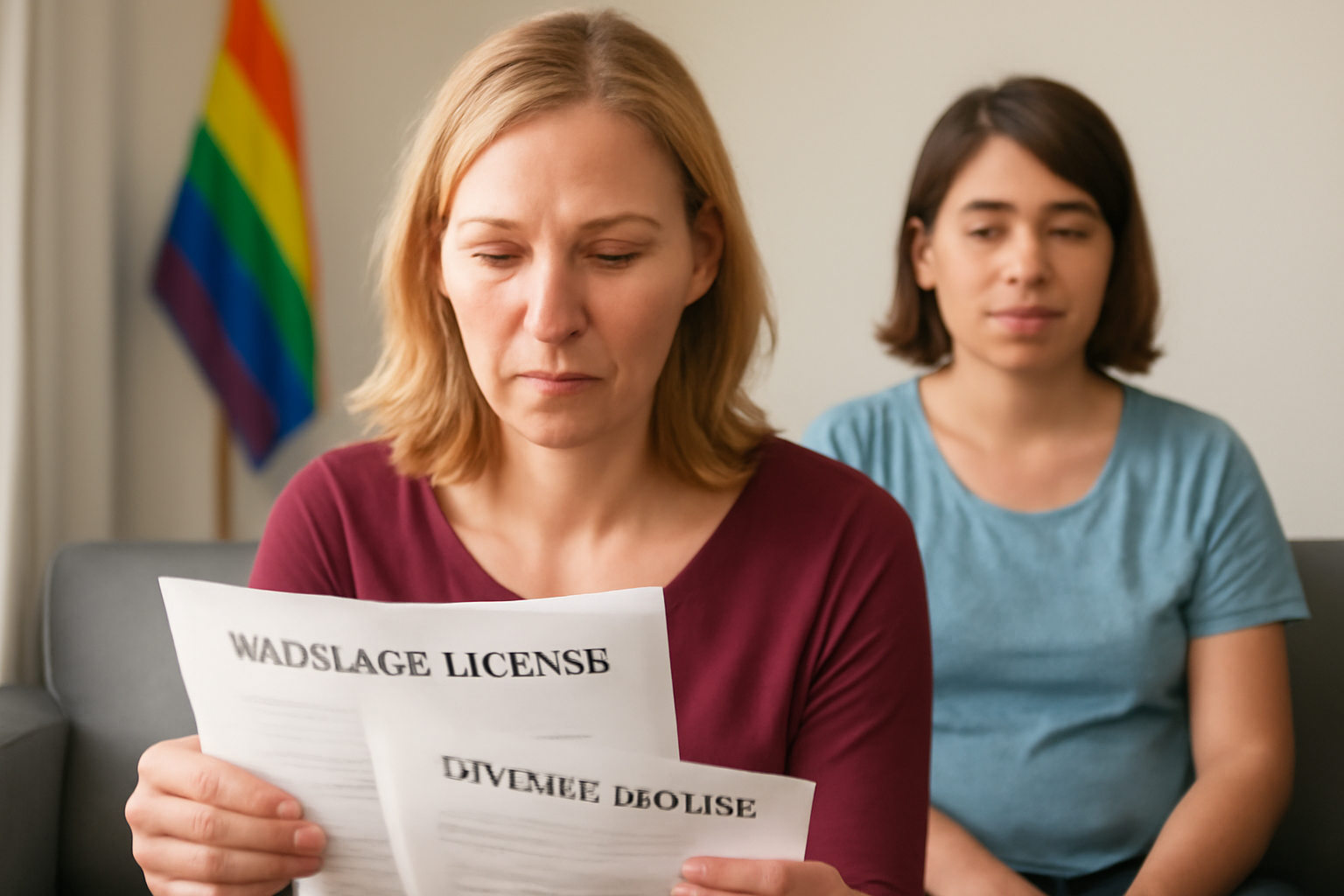
Untangling transgender marriage legalities
Amanda and her estranged spouse, Gillian, found themselves ensnared in a legal puzzle. Both wanted nothing more than a fresh start, but they were stuck in limbo thanks in part because lawyers hesitated over their controversial, complicated case. Thankfully, Amanda found an ACLU lawyer ready and willing, despite ACLU's usual hands-off stance on divorce matters. "If you can get divorced, you can get married," Amanda argued, pointing out Georgia's contradictory stance. The state suggested annulment, implying Gillian had lied about her gender. But Amanda refused a resolution that placed unfair blame on Gillian.Facing courtroom tension
In court, they endured deeply personal and invasive questions. Judge Deborah Turner handled initial proceedings but then passed it on due, no doubt, because she hoped some other judge might untangle this mess. When Judge Mark Lewis took over, his questions proved even more probing. Amanda stood her ground, refusing, with admirable resolve, not delve too deeply, standing firm in support Gillian and her rights. "I want out, but I won't throw Gillian under a bus," Amanda stated clearly, showing support and solidarity.A trailblazing judicial ruling
The court finally granted their divorce, highlighting how challenging it was then, legally speaking, just being transgender. Amanda and Gillian's ordeal painted a vivid picture, showing just how confusing things were right up until Obergefell v. Hodges changed it all, paving a smoother path. Their struggle sure wasn't an isolated one. Other states faced similar situations, questioning marriages where one spouse was transgender, all because laws were outdated and downright discriminatory. The Obergefell ruling was monumental, opening doors so everyone could marry, regardless, no questions asked.The impact and importance Obergefell v. Hodges
Thanks now, largely, because Obergefell, transgender folks can marry and divorce without their gender identity being an obstacle. This decision doesn't just represent a legal victory; it's a giant leap forward, ensuring everyone in our community can love freely. ACLU's James Esseks notes this ruling makes a huge difference in transgender rights. "Under Obergefell, sex doesn't matter in terms who can get married," he explains, making a case on how it better simplifies matters. Amanda and Gillian's journey, though undoubtedly painful, stands as a powerful narrative on how far LGBTQ+ rights have progressed, showing us all that love and identity should always be defended and not up legal question.Related Posts
Transgender Singer Sasha Allen Criticizes Passport Gender Policy
Transgender singer Sasha Allen voices frustration with U.S. passport policy Sasha Allen, a well-known transgender male singer, recently expressed his displeasure with changes made by an executive order that affect gender markers on U.S. passports. Due in part, his passport now incorrectly states that he identifies as “female.” For Allen and many others in LGBTQ+ circles, this development fee [...]
The Founders' Vision on Church and State: A Reflection on Modern Politics
In today's America, religion and politics seem more intertwined than ever, a scenario that might've baffled our founding fathers. They were pretty clear about wanting a separation between church and state, a principle they embedded in our First Amendment. It was their safeguard against a national religion, ensuring freedom in religious belief. Yet here we are, often finding these lines blurred, sp [...]
A Journey of Acceptance: A Syracuse Athlete's Coming Out Story
Finding my place at Syracuse: A journey from fear and uncertainty Back in 2023, I opened up about an incredible journey I went through as a Syracuse University athlete—one where I finally embraced my sexuality and found a supportive community. A new beginning: Syracuse and self-discovery Getting that acceptance letter from Syracuse was a defining moment, flooded with excitement and a bit (oka [...]